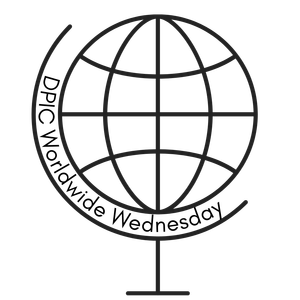
United States
Missouri’s April 9th execution of Brian Dorsey, despite widespread support for his clemency, once again garnered condemnation from the European Union, which described it as a “inhuman and degrading practice.” The EU’s statement highlighted the lack of the death penalty as a deterrent and the irreversibility of the punishment, noting that 197 death-sentenced prisoners have been exonerated. “The EU continues to call for the universal abolition of the death penalty and for States, that maintain the capital punishment, to implement a moratorium and move towards abolition, in line with the worldwide trend,” the statement said.
Democratic Republic of the Congo
Last month the DRC lifted its decades-long moratorium on capital punishment. President Félix Tshisekedi defended this decision on a recent visit to France, explaining in a press interview that “Although the Democratic Republic of Congo wants to be resolutely committed to respect for human rights and to the rule of law, it cannot afford the luxury of any passivity when its security and that of its population is threatened.” Firmin Yangambi Libote, a former death row prisoner, Congolese lawyer, and President of nonprofit Paix Sur Terre (Peace on Earth) told EPCM, an international death penalty abolition group, that the DRC’s decision was a “significant setback.” He elaborated, “This decision has nothing to do with combating impunity or strengthening the capacities of the Congolese armed forces.”
Iran
On April 24, 33-year-old dissident rapper Toomaj Salehi was sentenced to death by the Isfahan Revolutionary Court. Lawyer for Mr. Salehi, Amir Raeisian, said: “In a move that is unprecedented in its kind, Branch One of the Isfahan Revolutionary Court did not implement the Supreme Court’s decision in Toomaj’s 2022 case, it sentenced Toomaj Salehi to the maximum sentence for efsad-fil-arz charges, the death penalty.” The decision has been met with widespread international condemnation, with UN experts, protestors across the world, and 80 Iranian-Kurdish families who have lost loved ones during the “Women, Life, Freedom” protests calling for Mr. Salehi’s release.
Mr. Salehi was originally charged on October 29, 2022 as part of the “Women, Life, Freedom” protests that ensued following the death of Mahsa Jina Amini while in custody of the morality police. In July 2023, he was sentenced to a prison term of six years and three months by the Supreme Court. On November 18, 2023, Mr. Salehi was released on bail after 252 days in solitary confinement. A few days after publishing a YouTube video in which he mentioned the ill-treatment and torture he sustained, Mr. Salehi was rearrested on November 30 for “publishing false information and disturbing the public mind,” charges the Isfahan Revolutionary Court has ruled is within the jurisdiction of the Isfahan Criminal Court to decide. Prior to the “Women, Life, Freedom” movement, Mr. Salehi had been arrested in 2018 and 2021 for his music.
As of May 1, 2024, Norway-based Iran Human Rights reported that at least 171 executions have been carried out in the country since the beginning of this year.
Japan
On April 15, 2024, the Osaka District Court dismissed a lawsuit filed by two death-sentenced prisoners challenging the practice of notifying prisoners only a few hours before their scheduled execution and seeking $142,000 in damages for mental suffering due to the uncertainty. The petitioners argued that by failing to provide prisoners with adequate notice, they were unable to object to the scheduled execution before it occurred, thereby violating their rights to due process granted under Article 31 of Japan’s Constitution. According to the Asahi Shimbun, the petitioners also argued that the short notice violated their constitutional right to human dignity under Article 13.
Presiding Judge Noriko Yokota said that the plaintiffs “are in a position to accept the execution according to the current legislation on death penalty,” and denied them compensation, but did not rule on the constitutionality of same-day execution notifications, which has consistently drawn widespread international criticism. Previously, prisoners were provided a few days of notice, but that policy was changed after some prisoners committed suicide following knowledge of their scheduled execution date. According to the Asahi Shimbun, Japan had 109 death row prisoners at the end of March 2024.
Russia
An April 2024 telephone survey carried out by Russian Field, an independent pollster, found that 53% of participants were in favor of reinstating the death penalty, 39% are opposed, and 7% found the question difficult to answer. Of the 1,631 respondents, support for the death penalty was more likely among respondents living in small towns or villages, men, and older aged individuals. The crimes of pedophilia (57%), murder (56%), and terrorism (46%) garnered the most support for capital punishment. Lifting the 28-year moratorium on the use of the death penalty has become a subject of public debate following the March attack on Crocus City Hall.
Saudi Arabia
On April 29, 2024, 27 international organizations released a joint statement expressing “grave concern” for the continued execution of minors despite “Saudi Arabia’s narrative that it has halted juvenile death sentences.” In particular, the letter raises concern for the imminent execution of Yousif Al-Manasif and Ali Al-Mubaiouq, who were convicted largely on the basis of their own confessions and sentenced to death for crimes committed from the age of 14 to 17; the Specialized Criminal Court of Appeal upheld their death sentences this month and referred their case to the Supreme Court for final review. “If the Saudi leadership genuinely wants to be seen as a rights-respecting country, it needs to immediately halt all execution orders and commute all death sentences, including the egregious cases of al-Manasif and al-Mabyook,” said Joey Shea, Saudi Arabia researcher at Human Rights Watch.
On April 22, the European Saudi Organisation for Human Rights (ESOHR) raised concern over these two juveniles and the lives of six other minors at risk of execution. “ESOHR believes that Saudi Arabia’s previous practices of executing sentences without notifying families, combined with a lack of transparency, make it impossible to predict the timeframe between the referral of a case to the Supreme Court, its confirmation, and the execution time. However, the cases previously monitored confirm that the lives of the eight minors are in imminent danger,” said the report.
Taiwan
In response to a petition filed by 37 death row prisoners, the Constitutional Court heard five-hours of oral arguments regarding the constitutionality of the death penalty on April 23, 2024. Lawyers for the petitioners and anti-death penalty activists argued that the death penalty violates the constitutional “right of existence” and the principle of proportionality, as there is a lack of evidence to support a deterrent effect, and it violates the United Nations’ International Covenant on Civil and Political Rights (ICCPR), which Taiwan codified into domestic law in 2009. Lawyers for the Ministry of Justice (MOJ) countered that the constitution allows for “restrictions” to the “right of existence” and the “deprivation of life” is proportional for serious crimes and can be considered one such restriction; the MOJ also interpreted the ICCPR to encourage limiting, but not abolishing, capital punishment. The MOJ pointed to a 2024 opinion poll they commissioned showing 80% support for the death penalty amongst the public; the lawyers for the petitioners highlighted that an MOJ poll in 2008, which mentioned replacing the death penalty with life without parole, garnered 56% in favor of abolition. The MOJ also argued that the Constitutional Court should not make this decision, as it should be under the purview of the legislative branch. The Court could make a decision within three months, with a two-month extension available if needed.
Uganda
On April 3, 2024, the Constitutional Court upheld the Anti-Homosexuality Act, passed last year, which allows “aggravated homosexuality” to be punished with a death sentence, but voided certain provisions. The court said that the Act was “overwhelmingly passed on the basis of those views of the Ugandan people’s parliamentary representatives, who would know the sentiments of the people that they represent on the subject,” therefore not in violation of any parliamentary rules or procedures, and the court did not find it to be unconstitutional as an existing colonial era rule had already criminalized homosexuality. The court did void certain provisions that were “inconsistent with [the] right to health, privacy and freedom of religion,” and said that members of this community should not face discrimination when seeking medication.
“… Uganda’s Constitutional Court has come down on the side of hate, violence, and discrimination instead of standing up for fundamental rights for all,” said Larissa Kojoué, a researcher at Human Rights Watch. “The ruling will have a detrimental impact on all Ugandans, including LGBT people, families, and communities who continue to suffer the stigma that the Anti-Homosexuality Act enshrined into law.”
Vietnam
Truong My Lan, chair of real estate company Van Thinh Phat, was sentenced to death on April 11, 2024, after being found guilty of committing $12.5 billion in fraud – the nation’s largest ever financial fraud case. The court also directed her to compensate Saigon Joint Stock Commercial Bank (SCB) $26.9 million for the $27 million loss experienced under her 10-year control. According to state media VnExpress, the judgment explained that her actions “not only violate the property management rights of individuals and organizations but also push SCB into a state of special control; eroding people’s trust in the leadership of the Party and State.” According to the Associated Press, a former State Bank of Vietnam official accused of accepting $5.2 million in bribes, as well as another 84 alleged accomplices, are also being prosecuted.
Zimbabwe
In honor of 44 years of independence, Zimbabwe President Emmerson Mnangagwa granted clemency to 4,000 prisoners on April 18, 2024. Among those prisoners granted clemency were death-sentenced prisoners whose death sentences had been commuted and who had already served at least 20 years. Female prisoners, juvenile prisoners, and blind or otherwise disabled prisoners who had served a third of their term were released, as well as prisoners 60 years of age or older who had served a tenth of their term. Death row prisoners who had served at least 10 years had their sentences commuted to life in prison.
The National Assembly’s Portfolio Committee on Justice, Legal, and Parliamentary Affairs and the Senate’s Thematic Committee on Human Rights have scheduled public hearings from May 6 to May 10 to discuss a death penalty abolition bill that was introduced last year.
Sources
Additional Resource: Execution Monitor, Cornell Center on the Death Penalty Worldwide
Democratic Republic of the Congo
Staff Writer, Tshisekedi Defends Return Of Death Penalty, Taarifa, April 30, 2024; MAÎTRE YANGAMBI LIBOTE: “REGARDLESS OF THE CRIME, HUMANITY SHOULD NOT BE SACRIFICED,” EPCM, April 2024;
Iran
80 Kurdish Families Join Calls For Release Of Iranian Rapper Toomaj Salehi, Iran International, April 30, 2024; Iran rapper banned from phone calls after death sentence: supporters, The Citizen/Agence French-Presse, April 30, 2024; Patrick Wintour, ran’s death sentence for rapper sparks protests and undermines criticism of US, The Guardian, April 29, 2024; Iran: UN experts alarmed by death sentence imposed on rapper and songwriter, Toomaj Salehi, OHCHR, April 25, 2024; Outrage Over Death Sentence For Dissident Iranian Rapper, Iran International, April 24, 2024; IHRNGO Condemns Rapper Toomaj Salehi’s Death Sentence and Calls for International Reaction, Iran Human Rights, April 24, 2024
Japan
CHAD DE GUZMAN, Japanese Court Dismisses Death Row Inmates’ Lawsuit Challenging Short Notice of Executions, Time, April 15, 2024; ISSEI YAMAMOTO, Court rejects inmates’ suit on same-day notice for death penalty, The Asahi Shimbun, April 15, 2024; KARIN KANEKO, Death-row inmates’ lawsuit targeting same-day notifications of executions dismissed, The Japan Times, April 15, 2024;
Russia
Camilla Jessen, Death Penalty in Russia: Survey Finds Over 50% Support Its Return, MSN, April 25, 2024;
Saudi Arabia
Saudi Arabia: Halt Executions of Child Offenders, Human Rights Watch, April 29, 2024; Escalating Concerns Over the Lives of Minors Threatened With Death in Saudi Arabia, Human Rights Watch, April 29, 2024; Final Death Sentences and Others Pending Before the Supreme Court Against Minors: Saudi Arabia Crushes Commitments and Promises, ESOHR, April 22, 2024;
Uganda
RISDEL KASASIRA, Ugandan court upholds anti-gay law that allows the death penalty in some cases, Associated Press, April 3, 2024; Uganda: Court Upholds Anti-Homosexuality Act, Human Rights Watch, April 4, 2024; Ugandan court upholds anti-LGBTQ law but says some rights infringed, Reuters, April 3, 2024;
Taiwan
Teng Pei-ju, Key arguments from constitutional court’s debate on death penalty, Focus Taiwan, April 30, 2024; Yuchen Li, Taiwan’s death penalty and debate over constitutional rights, DW, April 24, 2024; Wu Cheng-feng, Constitutional Court to hear arguments on death penalty, Taipei Times, January 28, 2024;
Uganda
RISDEL KASASIRA, Ugandan court upholds anti-gay law that allows the death penalty in some cases, Associated Press, April 3, 2024;
United States
US: Statement by the Spokesperson on the execution in Missouri, April 10, 2024; Edward Helmore, Missouri death row inmate executed despite widespread calls for clemency, April 9, 2024; Missouri’s First Execution of 2024 Scheduled for Man Whose Trial Lawyers Had Conflicts of Interest and Who Has Unprecedented Support for Clemency, DPIC, April 5, 2024; Edward Helmore, More than 150 people call on Missouri governor to forgive Brian Dorsey’s death penalty, April 3, 2024;
Vietnam
ANIRUDDHA GHOSAL, Vietnam sentences real estate tycoon Truong My Lan to death in its largest-ever fraud case, Associated Press, April 12, 2024; ANIRUDDHA GHOSAL, A Vietnamese property tycoon accused of embezzling $12.5 billion begins her trial, Associated Press, March 5, 2024; Vietnamese Real Estate Tycoon Facing Trial in Embezzlement Case, VOA, February 5, 2024;
Zimbabwe
Public Hearings on Death Penalty Abolition, The Herald, April 29, 2024; FARAI MUTSAKA, Zimbabwe frees prisoners, including those sentenced to death, in an independence day amnesty, Associated Press, April 18, 2024;




